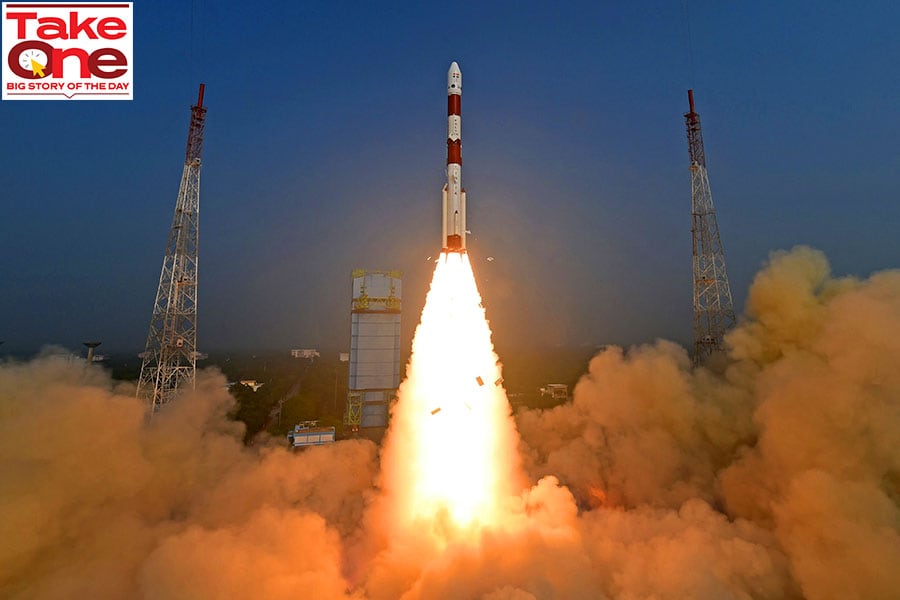
How the Budget can help India's nascent space tech startups
Beyond tax cuts and incentives, the government could support private enterprises in the sector by becoming a bigger consumer of new space solutions
 This handout photo taken and released by Indian Space Research Organisation (ISRO) shows the lifting-off the PSLV-C58 rocket carrying the X-ray Polarimeter Satellite (XPoSat) from the Satish Dhawan Space Centre in Sriharikota.
Image: Indian Space Research Organisation (ISRO) / AFP
This handout photo taken and released by Indian Space Research Organisation (ISRO) shows the lifting-off the PSLV-C58 rocket carrying the X-ray Polarimeter Satellite (XPoSat) from the Satish Dhawan Space Centre in Sriharikota.
Image: Indian Space Research Organisation (ISRO) / AFP
India’s Department of Space’s budget for the current fiscal year, as proposed in the interim Budget presented in February, is Rs 13,042.75 crore. On July 23, we’ll get to know the new government’s revisions, if any, for the year that ends March 31, 2025. The current figure compares with Rs 12,543.91 crore for FY23 and Rs 10,139.43 crore for FY22, according to the space department’s notes on grants for the current fiscal year.
In recent years, these budgets have seen modest, incremental increases, even as the Government of India has taken important steps to open the sector to private enterprise. Experts say that Indian Space Research Organisation (Isro), the space department’s main constituent that carries out the national space programme, should be getting significantly more money, given its outstanding achievements with frugal resources.
And, as a proportion of national GDP, India spends much less on space exploration than most other major space-faring economies, they point out. For example, reflecting the difference in the size of the two economies, plus higher spending, China has roughly 10X more active satellites in orbit today, and launches about 10 times more than India.
If one anticipates the day when India’s economy is twice as big as it is today, and in tandem “if we increase Isro’s budget and get to double it, then we may end up doing a lot more missions than what we do today,” Narayan Prasad, co-founder of Satsearch, a space-tech marketplace, and co-founder of Spaceport Sarabhai, a Delhi-based think tank had told Forbes India in an interview, after India joined the US-led Artemis Accords last year. These accords are a series of non-binding multilateral agreements to return humans to the Moon by 2025, and eventually going to Mars and beyond.



















